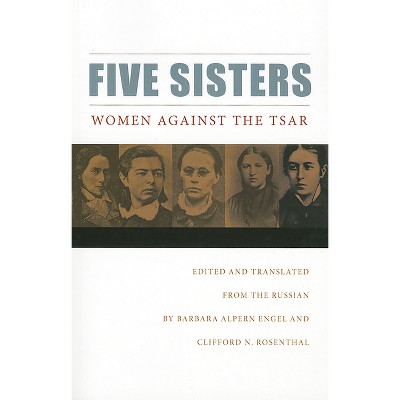Sponsored

Comrades Estranged - by Alex Boodrookas
Pre-order
Sponsored
About this item
Highlights
- In 1975, Kuwaiti workers orchestrated arguably the most powerful citizen-led movement for noncitizen rights in the history of the Persian Gulf.
- About the Author: Alex Boodrookas is Assistant Professor of History at Metropolitan State University of Denver.
- 368 Pages
- History, Middle East
Description
About the Book
"In 1975, Kuwaiti workers orchestrated arguably the most powerful citizen-led movement for noncitizen rights in the history of the Persian Gulf. Their efforts built on decades of wide-ranging struggle over the meanings and outlines of citizenship. During the twentieth century, anticolonial nationalists, pro-democracy reformers, feminists, and labor organizers joined forces to fight for a more equitable citizenship regime. In so doing, they won a remarkable series of victories: political independence, constitutional rights, and oil nationalization, reshaping not just Kuwait, but the global petroleum order. Comrades Estranged reframes the history of labor activism, citizenship, and decolonization in Persian Gulf by centering the history of social movements--especially organized labor. Alex Boodrookas traces how workers and their allies shaped the world-historic transformations witnessed across the region: the consolidation of British sovereignty, formation of autocratic states, inrush of hydrocarbon wealth, onset of decolonization, and rise of both mass migration and mass politics. But unions failed to incorporate noncitizens into their movement, and as Boodrookas argues, this fatally undermined the movements' strength. The contradictions of nationalist and internationalist visions proved insurmountable. Comrades Estranged thus sheds light on both the power, and the limits, of citizenship and the nation-state as the framework for political action"-- Provided by publisher.Book Synopsis
In 1975, Kuwaiti workers orchestrated arguably the most powerful citizen-led movement for noncitizen rights in the history of the Persian Gulf. Their efforts built on decades of wide-ranging struggle over the meanings and outlines of citizenship. During the twentieth century, anticolonial nationalists, pro-democracy reformers, feminists, and labor organizers joined forces to fight for a more equitable citizenship regime. In so doing, they won a remarkable series of victories: political independence, constitutional rights, and oil nationalization, reshaping not just Kuwait, but the global petroleum order.
Comrades Estranged reframes the history of labor activism, citizenship, and decolonization in Persian Gulf by centering the history of social movements--especially organized labor. Alex Boodrookas traces how workers and their allies shaped the world-historic transformations witnessed across the region: the consolidation of British sovereignty, formation of autocratic states, inrush of hydrocarbon wealth, onset of decolonization, and rise of both mass migration and mass politics. But unions failed to incorporate noncitizens into their movement, and as Boodrookas argues, this fatally undermined the movements' strength. The contradictions of nationalist and internationalist visions proved insurmountable. Comrades Estranged thus sheds light on both the power, and the limits, of citizenship and the nation-state as the framework for political action.
Review Quotes
"A riveting account that redefines our understanding of labor, citizenship, and decolonization in Kuwait. Alex Boodrookas brilliantly illuminates both the power and limits of worker-led struggle, making this an indispensable contribution to Middle East history and global labor studies." --Adam Hanieh, author of Crude Capitalism: Oil, Corporate Power, and the Making of the World Market
"Alex Boodrookas upends the conventional wisdom about oil and politics in the Persian Gulf by telling the story of a twentieth-century Kuwaiti labor movement, using, as he puts it, 'underutilized sources.' He isn't kidding. There is much that is new here. I am in awe."--Robert Vitalis, author of Oilcraft: The Myths of Scarcity and Security that Haunt U.S. Energy Policy
"Even for those of us who have thought long and hard about labor, capital, and empire in the Gulf, this book is a revelation. Beautifully constructed and composed, rich in Arabic-language sources, and insistent on recognition of how struggle by workers themselves has wrested rights for citizens and noncitizens, this book will become a classic of the field."--Laleh Khalili, author of Sinews of War and Trade: Shipping and Capitalism in the Arabian Peninsula
About the Author
Alex Boodrookas is Assistant Professor of History at Metropolitan State University of Denver.Shipping details
Return details
Frequently bought together


Trending Non-Fiction















